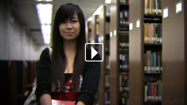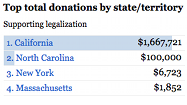Teacher responses to the 2010 release
The following is a list of teacher responses to their "value-added" ratings during the intial release in 2010. See the most recent responses »
The Times gave LAUSD elementary school teachers rated in this database the opportunity to preview their value-added evaluations and publicly respond. Some issues raised by teachers may be addressed in the FAQ. Teachers who have not commented may do so by contacting The Times.
|
|
 Delicious
Delicious
|
 Digg
Digg
|
 Facebook
Facebook
|
 Twitter
Twitter
|





I work with the GATE students, which means that many of my students are scoring in the higher to highest score ranges. For many of them, making a jump of 2 points in Language Arts and a 10 point jump in Mathematics is phenomenal. These results are not reflective of situation nor class demographics. I had hoped the LA Times could produce a higher quality measure.
August 19, 2010 at 7:05 p.m.
To whom it may concern:
This correspondence is in reference to some results teachers including myself received regarding an 'effectiveness' outcome teacher scores the L.A. Times may or may not publish. I received this 'effectiveness' score Thursday August 19, 2010 and I have been asked to respond before August 20, 2010 in order to be published in the Times.
I ask the Source: The Los Angeles Times, Los Angeles Unified School District, Richard Buddin Credits: Jason Felch, Stephanie Ferrell, Megan Garvey, Thomas Suh Lauder, David Lauter, Julie Marquis, Sandra Poindexter, Ken Schwencke, Beth Shuster, Jason Song, Doug Smith Copy editing: Laura Dominick:
Does the source’s instrumentation take factors into consideration like, say for example, a principal who may intentionally weight certain teachers with 'tier 3' (or known behavior issues) students? Does the source’s instrumentation take factors into consideration like the families' educational attitudes toward education being served compared to more privileged communities? Does the source’s instrumentation take factors into consideration like home stability? Does the source’s instrumentation take factors into consideration like student transiency? Does the source consider a teacher cannot leave a school due to ethnic balance?
Though I appreciate the source’s attempt to marginalize some with these 'effectiveness' results, I believe your measures are invalid in this case at least.
I take pride that I may have even made the source’s 'graphic effectiveness' budge, given the challenges that were put my way in the past 5 years. This type of thing may serve its purpose and it is a sad time in American history that the finger points to the educator and not the parental responsibilities. Responsibility needs to be addressed, but I hope the folks reading this understand just how skewed it potentially is.
Next time you do this be certain to include interviews, and reaction of students, parents, and stakeholders involved before this is done.
This misrepresentation is a disgrace.
When you're done with this study, which may be well intended, please have the decency to have a discussion with me to perhaps find ways to improve your measures for accuracy.
Sincerely,
Brian Little
P.S. – Let me know what I can do to meet the standards for publication.
August 19, 2010 at 6:27 p.m.
I'm proud of my results, but I caution all viewers of this data, that effective teachers impact students and families in many ways including: socio-emotional support, building trusting relationships, encouragement, empathy, providing supplies, food, and other resources.
August 19, 2010 at 6:15 p.m.
I was hired by a gifted magnet because I was an “outside the box” thinker who would bring real-life experiential lessons to my students. Based on feedback from former students and their families, my students are successful, triumphant in their academic pursuits and leading enriched lives.Teaching to the test has never been my modus operandi. Thanks for proving this with your omniscient assessment of my dedicated work.
August 19, 2010 at 6:01 p.m.
If one was to give credence to the value-added ranking system, I would have to say that I am honored to rank "average" among my more than competent peers. My professional reputation speaks for itself. Students' work habits, love of learning, thirst for knowledge, self confidence, self control, respect for diversity and ecology has been the more important thrust in the classroom for most of us- not standardized test scores. To show solidarity, please cancel my 20 year LA Times subscription.
August 19, 2010 at 5:29 p.m.
It is nice to see validation for the dedication it takes. It would even be nicer to afford to live in los angeles and get paid according to what I accomplish like the real world. I know way to many teachers who accept failure as something out of their control but never the less are making the same if not more than those that connect, care and nuture the kids not only to produce test scores but more importantly good productive citizens.
August 19, 2010 at 5:22 p.m.
This value-added measure is just one small facet of what I teach my students. This measurement tool does not show the love of learning that I instill in my students; the appreciation of fine art, music, and literature as well as the ability to communicate effectively and to work together cooperatively. The results of a standardized test do not show how my students learn to appreciate diversity and learn to treat others with respect and empathy. All of these things that I teach my students are far more important life skills than performing well on a multiple choice test.
August 19, 2010 at 5:19 p.m.
I am assuming that teaching split grade level classes does not skew scores. Three years of this data is from my split 5/6 grade level classes.
August 19, 2010 at 4:58 p.m.
First of all, I would like to know how is it legal for you to publish my name (whether I respond or not) without my permission.
Second of all, I object to being "classified" as "average" based on one specific measurement. Even our principals must judge us on a range of performances when we are being evaluated.
Cynthia Fluharty
August 19, 2010 at 2:37 p.m.
Remember that standardized test scores are but one small piece of the complicated puzzle of what good teaching accomplishes and how much students have learned. Some of my students may not have scored Proficient or Advanced on the California Standards Test, but I have already analyzed my scores from last year's students, and I am so proud of how hard each and every student and their parents worked to help them gain the skills they will need to be successful in the future. My precious students learned much more than this test can possibly measure. I believe that incorporating the Arts into the curriculum, as we do at Carson Street, plays a great part in increased student achievement.
August 19, 2010 at 2:31 p.m.